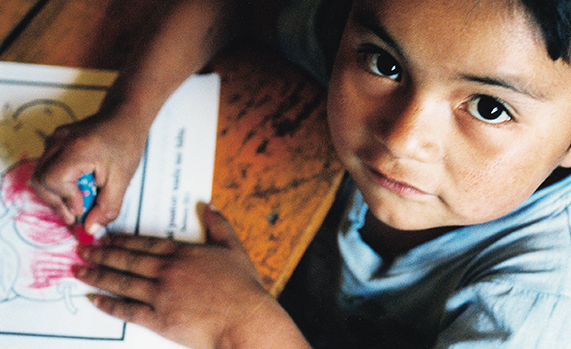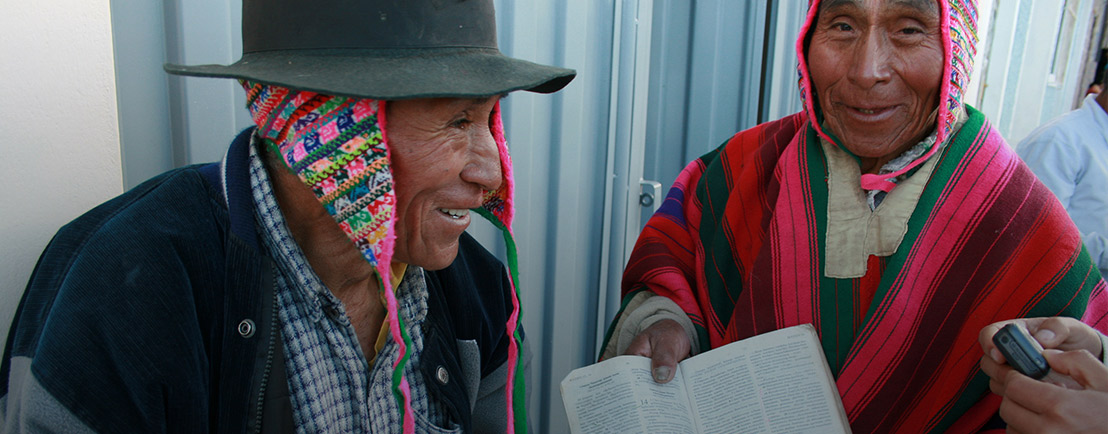In Peru, a vast majority of people identify with the Christian faith. But in a country where 25 percent of the population lives in poverty, spiritual darkness and physical brokenness remain. In rural Peru, believers are still waiting to access the complete Bible in a language they understand. And throughout the country, many women and children suffer from social and economic oppression.
That’s why Peruvian Bible Society, with support from American Bible Society’s financial partners, is working to spread the hope of God’s Word and to provide physical resources and educational programs. Through the support of financial partners, hungry children are being fed, poor women are learning how to read and the Bible is being translated for communities hungry for God’s Word.
Opportunity
Bible Translation: After Spanish, the second most popular language in Peru is Quechua, spoken by 3.9 million people. And Quechua dialects vary by region. The most popular variety of Quechua is Apurímac, spoken by 246,000 people. While Apurímac Quechua speakers already have a version of the New Testament in their heart language, they are still waiting to access the complete Bible.
Impoverished Children: In Peru, 7.5 million, or one out of four, people live in poverty. The historically poor economy has been especially hard on Peruvian youth. More than 2.5 million children in Peru have to work. And many young children are malnourished. In this environment, Christian partners must link arms to bring physical and spiritual sustenance to the children of Peru.
Illiteracy and Domestic Violence: Since 2005, Peruvian Bible Society has worked with partners like American Bible Society to educate Peruvians who cannot read, write or understand the Bible in their heart language. In many communities, young boys are educated while young girls are not. This cultural norm greatly decreases the socioeconomic mobility of women, making them more susceptible to domestic violence in the home. These realities are especially true in the most rural, impoverished regions of the country.

Transformation
Bible Translation: With support from American Bible Society’s financial partners, Peruvian Bible Society is working to translate the Old Testament for Peru’s 246,000 Apurímac Quechua speakers. With three years of training under their belt, the Bible translation [Link] team is hard at work, looking forward to a day when Apurímac communities can engage with the entirety of God’s Word in their mother tongue.
Impoverished Children: The “Bread of Life” program has blessed more than 6,000 poor children in Peru. Peruvian Bible Society, with support from American Bible Society’s financial partners, provides nutritious daily breakfasts and Bible classes for at-risk youth in Peru. Through this ministry, boys and girls between the ages of 4 and 13 find physical nourishment as well as spiritual encouragement through God’s Word.
Illiteracy and Domestic Violence: Since 2005, Peruvian Bible Society has worked with partners like American Bible Society to educate Quechua speakers who cannot read, write or understand the Bible in their own language. In addition to hosting Bible-based literacy classes, the “Read to Live” program also publishes study guides designed to prevent domestic violence. These Scripture-based materials cover a wide range of topics, such as treating others well, identifying domestic violence risk factors, uniting families and valuing women.

